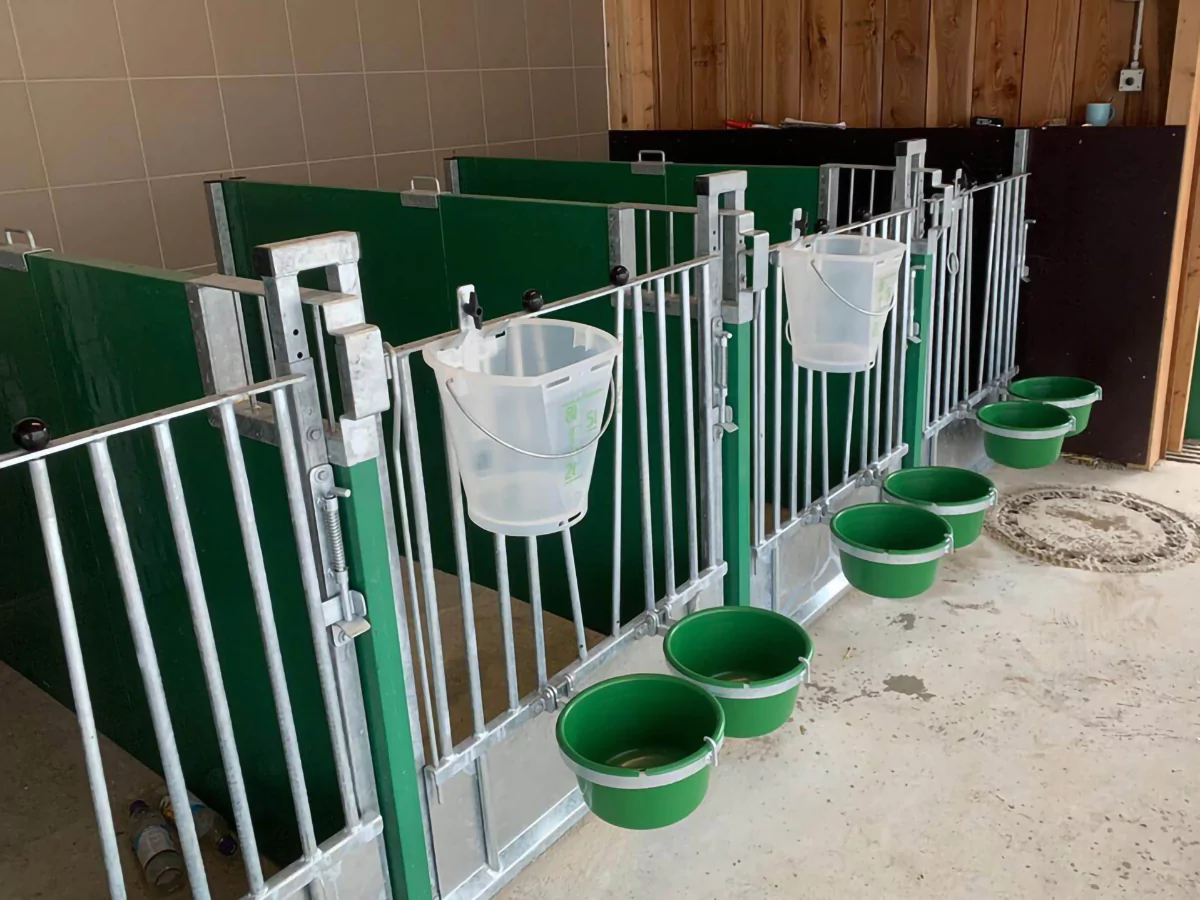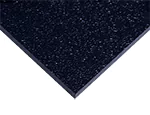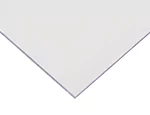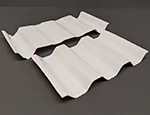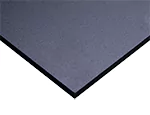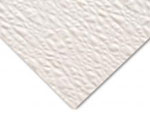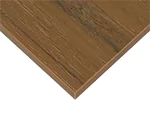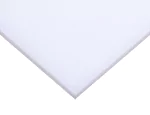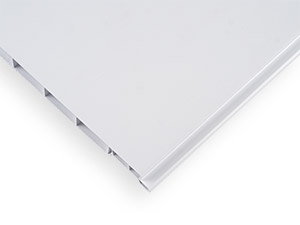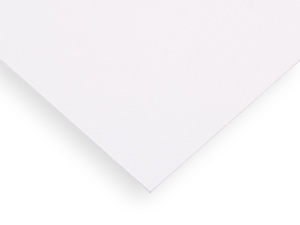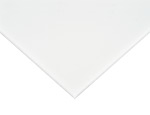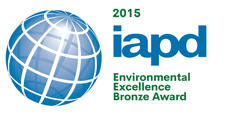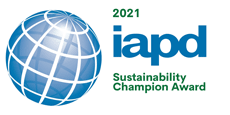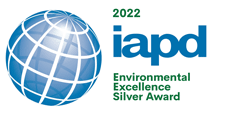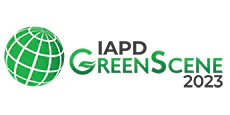Plastics play a pivotal role in the construction of animal kennels and dog daycare facilities - their durability, versatility, and general ease of maintenance compared to similar materials make them a good fit for kennel walls, floors, partitions, terrariums, and more. HDPE and polycarbonate are two of the more widely used materials in kennel construction, while expanded PVC is used for constructing reptile enclosures, or terrariums.
- Expanded PVC is a lightweight, moisture-resistant, and cost-effective material that is durable enough to resist scratches and everyday wear. It is comparatively easy to cut and install and has good insulation properties that help keep animals comfortable within reptile enclosures. Expanded PVC is non-porous and resists mold or bacteria growth.
- HDPE is used in the construction of kennel walls and floors as well as calving pens and calf pens. It features high impact resistance, chemical resistance, and moisture resistance. As another non-porous material, HDPE is easier to clean and sanitize than wood when used for kennel walls. More specialized grades of HDPE have various benefits for kennels and dog daycare facilities:
- MediGrade HDPE provides active antimicrobial protection to further reduce the chance of bacteria growth and protect animals in the kennel from diseases.
- ColorCore HDPE is a multi-layer colored HDPE sheet that can be engraved or machined into equipment or panels for indoor or outdoor dog daycare playgrounds. Like all HDPE sheets, ColorCore resists animal fluids and can be easily cleaned.
- Timberline HDPE delivers an embossed woodgrain look without the weaknesses of wood - it won't crack, splinter, rot, swell, chip, or absorb water. Timberline replaces wood for indoor and outdoor environments.
- Marine Board grades can add grip and slip resistance for walkways and floors to prevent animals from slipping.
- Playboard HDPE sheet is another colored HDPE sheet that can be machined into panels or equipment for dog daycare facilities and playgrounds.
- Polycarbonate is nearly unbreakable material with excellent clarity. In kennels, polycarbonate serves as transparent doors, windows, or viewports into different areas of the kennel to allow for safe observation of animals. It is a safer and more durable alternative to glass.
Animal trailers require materials that are lightweight, durable, and withstand regular cleaning in order to safely transport animals. Plastics like HDPE, polycarbonate, and expanded PVC meet these requirements and more.
- Expanded PVC is a rigid foam board that is easy to handle, install, and clean. Typically used for interior walls and ceilings, it can be used as a lightweight divider in animal trailers in order to separate animals. Its ease of installation and removal allows for some flexibility in the amount of space afforded to each animal within the trailer. Expanded PVC may also be used as a protective lining to prevent structural damage to the trailer.
- HDPE sees use in animal trailers as flooring and wall panels. Its non-slip surface prevents animals from sliding around during transport, while its UV resistance ensures that it won't degrade from exposure to sunlight. Its moisture and chemical resistance protect the trailer from animal excretions during transport and allow for sanitization and cleaning without damaging the trailer. HDPE is smoother and less sharp than metal at its edges, which reduces the chance of accidental animal injury while in the trailer.
- Polycarbonate's clarity and durability make it a great option for protective windows and ventilation panels. UV-resistant variants of polycarbonate allow for its use in sunlight without yellowing or degrading, and its outstanding impact resistance ensures it will not break from repeated impacts from animals.
Veterinary facilities require materials that can withstand unexpected impacts from animals and can easily be cleaned or sanitized to create a consistently hygienic and safe environment for veterinarians and animals alike. Plastics like HDPE, expanded PVC, polycarbonate, acrylic, and ABS are all durable and versatile materials that can meet these requirements.
- ABS is a heat formable material used in veterinary facilities to create durable equipment casings and fixtures due to its impact resistance, toughness, and resistance to chemicals.
- Acrylic's clarity and better impact resistance compared to glass allow for its use as a replacement for glass in barriers, observation windows, and protective shields.
- Expanded PVC is a popular material for veterinary facilities due to its durability, chemical resistance, moisture resistance, and light weight. Expanded PVC is durable enough to serve as kennel dividers and can be regularly sanitized without beginning to degrade. Outside of kennels, expanded PVC can be used for shelving, cabinetry, and workstations.
- HDPE is a versatile moisture- and impact-resistant material with several specialized grades such as MediGrade and Marine Board that are well-suited for veterinary facilities. MediGrade HDPE provides antimicrobial protection and allows for easier and more frequent cleaning to keep spaces sanitary, while textured Marine Board adds additional grip and slip resistance to walkways and floors to prevent slipping. HDPE will not rot, swell, split, or warp when exposed to water or moisture, and is UV resistant to avoid degradation from sunlight.
- Polycarbonate is a clear and lightweight material with better impact resistance than glass. It can be used for many of the same applications as acrylic, like observation windows and protective shields, when more durability is needed.
Agricultural and livestock facilities need wall panels that are durable, moisture-resistant, long-lasting, easy to maintain, and cost-effective. Plastics like PVC, HDPE, FRP, and UHMWPE have the necessary properties to serve as wall panels for areas that see heavy animal traffic such as barns or poultry houses.
- Ag-Tuf corrugated PVC panels are made specifically for use in agricultural and industrial interiors. Its excellent resistance to chemicals and animal gasses make frequent cleaning a non-issue, even when using harsh chemical cleaners. Ag-Tuf is rust-proof and scratch- and impact-resistant.
- Duraclad PVC panels are interlocking wall panels with a multiwall structure that gives them great rigidity and strength. They resist chemicals, bacteria, mold, and animal gasses and are easy to sanitize. Like Ag-Tuf, these panels are used as wall cladding for barns and farms as well as animal kennels. Duraclad panels can be easily installed with the fasteners hidden from view for a smooth and clean finish.
- Palclad Pro HYG panels resist the impacts and scratches from animals. Unlike Ag-Tuf and Duraclad, Palclad Pro HYG features active antimicrobial protection that kills or inhibits the growth of bacteria, fungi, and mold without leaching toxins into the environment. This reduces the chance of animals contracting diseases without exposing them to potentially toxic chemicals. Palclad Pro HYG panels are easy to install and are also chemically resistant for easy cleaning and maintenance.
- FRP panels are fiberglass reinforced wall and ceiling panels that feature excellent resistance to impacts, chemicals, and moisture. Like Ag-Tuf, they can handle harsh cleaning routines and have a high resistance to corrosion. FRP panels are a good choice for high-traffic areas such as dairy or pig barns, poultry farms, and processing facilities.
- High Density Polyethylene (HDPE) sheets are another good material choice for livestock buildings. This material is UV resistant and can be used for indoor and outdoor applications. Special grades of HDPE such as TimberLine mimic the look of woodgrain while retaining HDPE's superior durability and resistance to chemicals and bacterial growth. This allows HDPE to replace wood in pigpens, chicken coops, cattle barns, and other indoor or outdoor applications. HDPE is available in many colors and patterns to fit the look of existing facilities.
- UHMW-PE, or Ultra High Molecular Weight Polyethylene, offers exceptional impact and wear resistance, making it ideal for areas exposed to heavy animal traffic or equipment use. Its moisture and chemical resistance are ideal for environments that need regular cleaning using harsh chemicals. UHMW-PE panels are a long-lasting material solution used for large animal facilities like cattle or horse barns.
Agility course trainers and creators are looking at newer material options for creating agility courses that are easier to set up and maintain. While plywood is a popular material choice, it is heavy and prone to absorbing moisture and bacteria. Newer materials like HDPE and expanded PVC are better alternatives for agility courses.
- Expanded PVC is a better alternative for creating the barriers and hurtles that dogs jump over in agility courses or agility course training. Expanded PVC can easily cut into custom shapes necessary for barriers and hurtles and is lighter than playwood for faster course setup. And unlike plywood, expanded PVC has a closed-cell surface that resists moisture and bacteria growth.
- HDPE is an impact- and moisture-resistant material that won't crack, splinter, rot, or otherwise deform like plywood. More durable than plywood, HDPE withstands stress without breaking and is an increasingly popular material used to create the ladders, tilt decks, and stop/bounce pads seen in agility courses. Available in different colors and textures, HDPE can help reduce the risk of slipping for animals on tilt decks and ladders.








